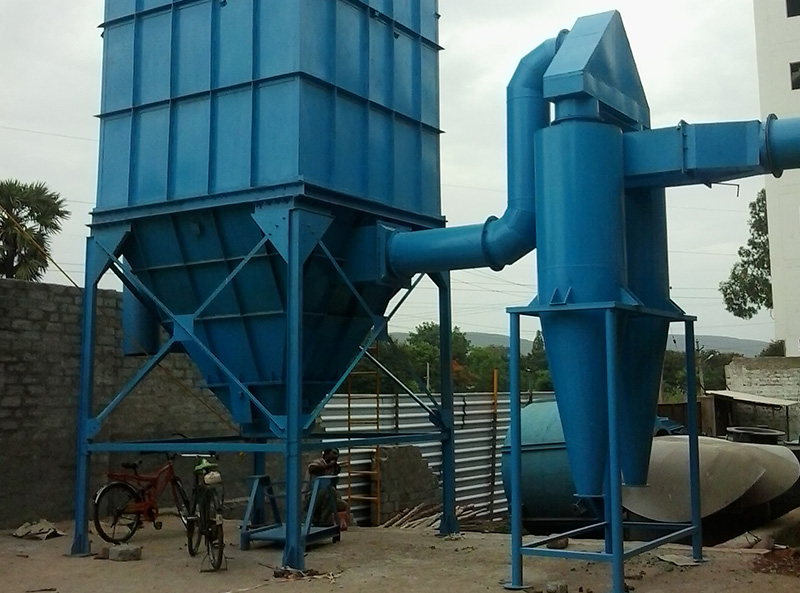A Complete Guide to Bag Filter Manufacturers: What to Look for and Why It Matters
In today’s industrial landscape, air pollution control and dust collection systems play a crucial role in maintaining safe, clean, and efficient operations. Among the many filtration solutions available, bag filters stand out for their reliability, cost-effectiveness, and versatility. As industries increasingly prioritize environmental compliance and workplace safety, the demand for high-quality bag filter manufacturers continues to grow.
But what makes a manufacturer trustworthy? And how do you choose the right one for your needs? This blog provides a clear guide to understanding bag filters, the manufacturing process, and key factors to consider when selecting a manufacturer.
What Are Bag Filters?
Bag filters—also known as fabric filters or baghouse filters—are air pollution control devices used to capture dust, particulate matter, and airborne contaminants. They work by passing dust-laden air through filter bags, which trap the particles while allowing clean air to pass through.
Common Applications
Bag filters are widely used in:
- Cement plants
- Steel and foundry industries
- Food processing units
- Chemical and pharmaceutical sectors
- Power generation
- Woodworking and furniture factories
Their ability to handle large volumes of air and fine particulates makes them essential in heavy-duty industrial environments.
How Bag Filters Are Manufactured
Bag filter manufacturing involves advanced engineering, material selection, and precision stitching. Although designs may vary, most manufacturers follow these key steps:
1. Material Selection
The performance of a bag filter largely depends on the material used. Common fabrics include:
- Polyester
- Polypropylene
- Aramid (Nomex)
- PTFE
- Fiberglass
Each material offers different thermal, chemical, and mechanical properties.
2. Fabric Cutting and Stitching
Precision cutting ensures the correct dimensions and surface area. Manufacturers then sew the bags using durable threads that can withstand high temperatures and mechanical stress.
3. Reinforcement and Finishing
Features like snap bands, rings, and anti-collapse cages are integrated to enhance structural integrity.
4. Quality Testing
A reputable manufacturer conducts tests for:
- Permeability
- Tensile strength
- Temperature resistance
- Seam strength
- Dust holding capacity
High-quality filters are tested rigorously to ensure long service life and consistent performance.
Key Qualities of a Reliable Bag Filter Manufacturer
Choosing the right manufacturing partner is critical for long-term operational efficiency. Here are some factors to consider:
1. Expertise and Technical Knowledge
A good manufacturer should have a deep understanding of filtration technology, industrial environments, and regulatory standards.
2. Customization Capabilities
Industries often require filters tailored to specific temperatures, dust loads, and chemical exposures. Customizable solutions indicate strong design capability.
3. Quality Assurance
Look for manufacturers that follow strict quality control processes and adhere to international standards such as ISO certifications.
4. Material Variety
A diverse range of fabrics shows that the manufacturer can meet different industrial requirements.
5. After-Sales Support
Technical support, maintenance guidance, and installation assistance add long-term value.
6. Competitive Pricing
While low-cost filters may be tempting, durability and efficiency matter far more. A trustworthy manufacturer offers a balanced combination of quality and fair pricing.
Why Choosing the Right Bag Filter Matters
Working with the right manufacturer provides several advantages:
- Improved filtration efficiency
- Longer bag life, reducing downtime and replacement costs
- Energy savings due to optimized airflow
- Reduced emissions, helping meet environmental regulations
- Enhanced worker safety
In industries where dust control is vital, filtration quality can influence overall productivity and operational costs.
Conclusion
Bag filters are essential components of modern industrial dust collection systems, and selecting the right manufacturer can significantly impact system performance and longevity. By focusing on quality materials, technical expertise, customization options, and reliable support, industries can ensure efficient and compliant filtration operations.
Whether you’re upgrading your existing dust collection system or designing a new one, understanding these factors will help you make an informed decision—and get the most value out of your filtration investment.
URL: For more information, visit EssarAirsystem : Bag filter Manufacturers



